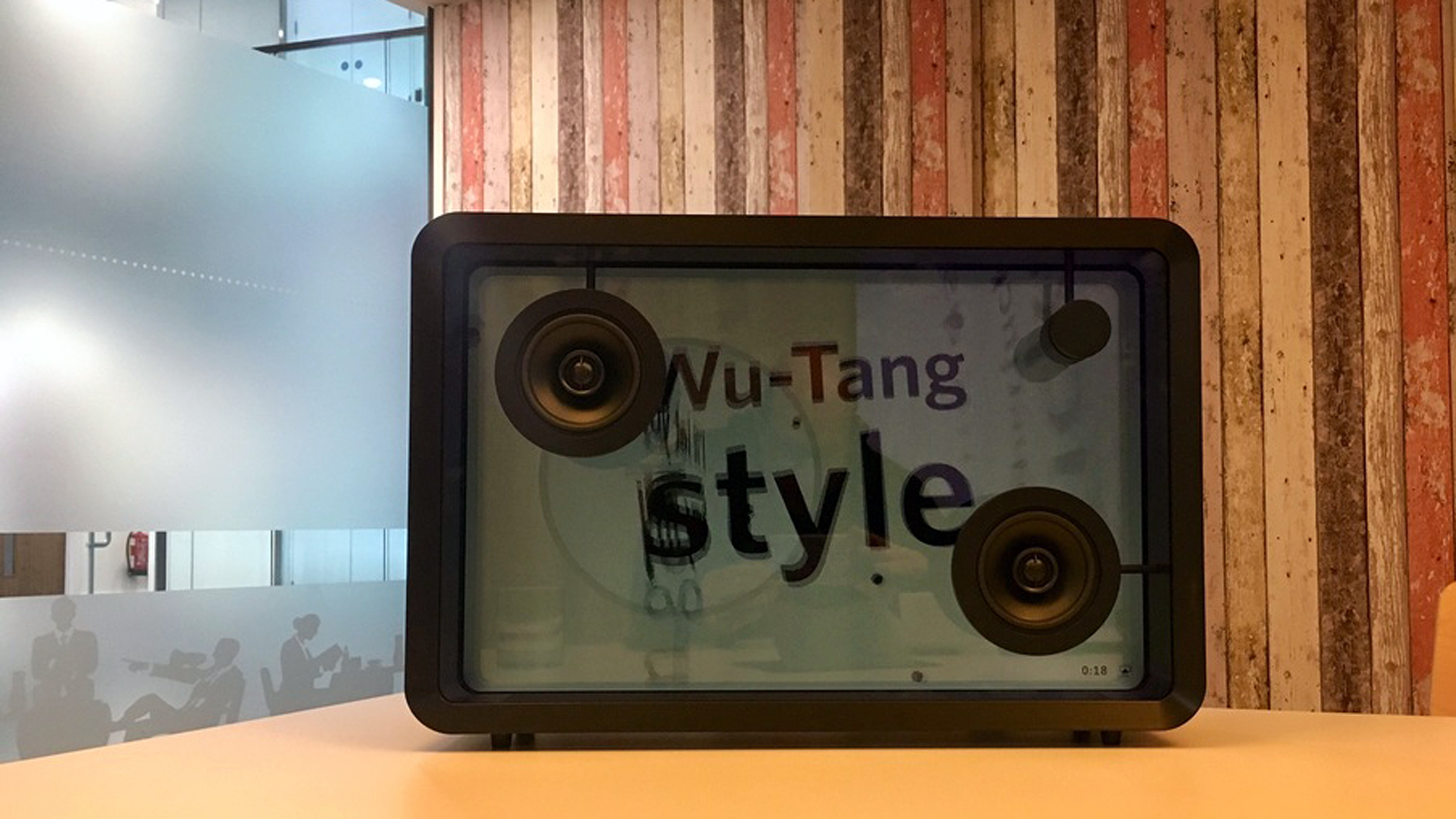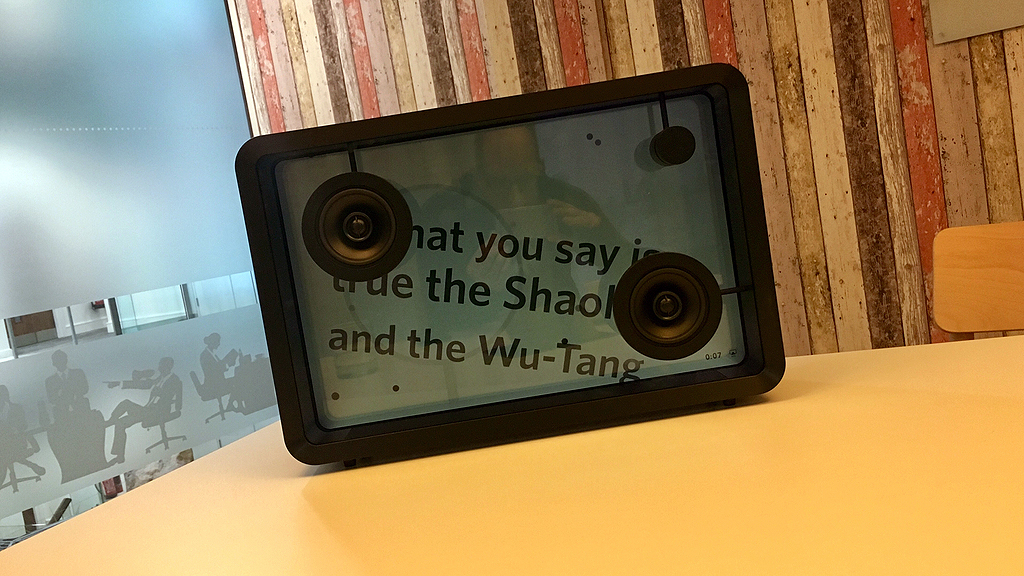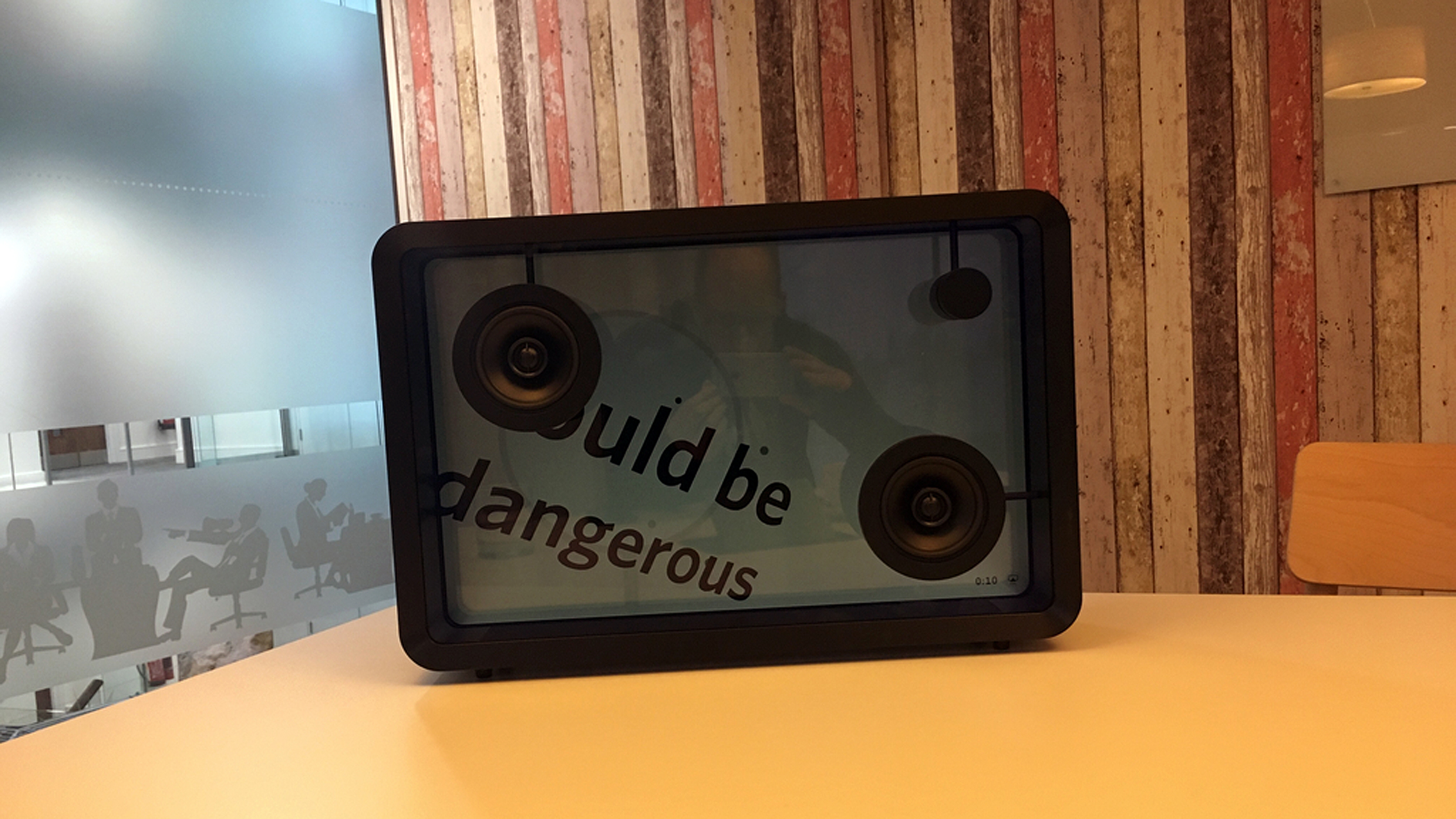The Cotodama Lyric speaker shows the lyrics of every song it plays and is nothing short of a musical work of art
Japanese speaker-screen marvel is the best thing we've seen and heard for months, and it only costs £4,000!


How good do you think a speaker that shows lyrics on a screen as songs play might be? If you're anything like me, your obvious answer to this would be: "It'll be a gimmicky piece of crap that you buy as a present for someone you don't like that much".
But in Japan they do things differently, and Cotodama Lyric is not only great, it's also so demandingly priced, you won't even be buying it as a present for the person you love the most in the world. Unless it's yourself.
According to the press release, the Lyric speaker 'has been gaining a high reputation from domestic audiences based on the concept of “leading people to the world of lyrics”.' Yup.
What it does is to present the lyrics of songs sent to it via Airplay, Spotify Connect or a host of music services working off the back of its own iOS/Android app (but not Google Chromecast) in a brilliantly varied array of typefaces and background graphics.
The tech underlying this is a 'translucent screen' within an attractive speaker casing that has two front-facing 'coaxial loudspeakers' and a pair of downward firing, passive bass radiators. The lyrics come courtesy of Japan's PetitLyrics, which maintains a database of 'more than 2 million songs.'
Obviously, rather more than 2 million songs have been written in the history of music, but as long as the track you're after is at least somewhat well known, it's probably there.

The Lyric uses different visual and text treatments depending on how it perceives the tune's mood

The Lyric uses different visual and text treatments depending on how it perceives the tune's mood
The first track I tried to play was Wu Tang Clan's relatively obscure Ron O'Neal, and that didn't work out. But not only did it have all the tracks from their first album, including Bring Da Ruckus (above), it even showed all the swearing, in glorious, high-definition, tastefully crisp fonts.
Get all the latest news, reviews, deals and buying guides on gorgeous tech, home and active products from the T3 experts
Otodama puts it like this: "Music analysis technologies developed by National Institute of Advanced Industrial Science and Technology (AIST)", whatever that is, "automatically analyse the song's mood and structure, and the built-in expression engine creates motion graphics to each song that's played."
As for the lyrics, "If it is a mild song like a ballad, the fonts and movements become soft. If it is an energetic song like rock, they become strong and powerful."
I would put it like this: it's a very decent sounding speaker, especially once you crank it up and the bass ports start to make their presence felt. The way the lyrics appear is little short of genius. As to whether the 'fonts and movements' match the tone of the tune being played, I am not so convinced, but what you see definitely varies from track to track, with results that are consistently mesmeric.
Tech details are pretty scarce, so I've no idea what the screen is, but it's bright enough to see under fairly scorching office lighting. This isn't really a tech purchase, it's an emotional one. It's the coolest thing I've seen since in the last few months, and it's yours, if you can find one, for £4,330.

Duncan is the former lifestyle editor of T3 and has been writing about tech for almost 15 years. He has covered everything from smartphones to headphones, TV to AC and air fryers to the movies of James Bond and obscure anime. His current brief is everything to do with the home and kitchen, which is good because he is an excellent cook, if he says so himself. He also covers cycling and ebikes – like over-using italics, this is another passion of his. In his long and varied lifestyle-tech career he is one of the few people to have been a fitness editor despite being unfit and a cars editor for not one but two websites, despite being unable to drive. He also has about 400 vacuum cleaners, and is possibly the UK's leading expert on cordless vacuum cleaners, despite being decidedly messy. A cricket fan for over 30 years, he also recently become T3's cricket editor, writing about how to stream obscure T20 tournaments, and turning out some typically no-nonsense opinions on the world's top teams and players.
Before T3, Duncan was a music and film reviewer, worked for a magazine about gambling that employed a surprisingly large number of convicted criminals, and then a magazine called Bizarre that was essentially like a cross between Reddit and DeviantArt, before the invention of the internet. There was also a lengthy period where he essentially wrote all of T3 magazine every month for about 3 years.
A broadcaster, raconteur and public speaker, Duncan used to be on telly loads, but an unfortunate incident put a stop to that, so he now largely contents himself with telling people, "I used to be on the TV, you know."